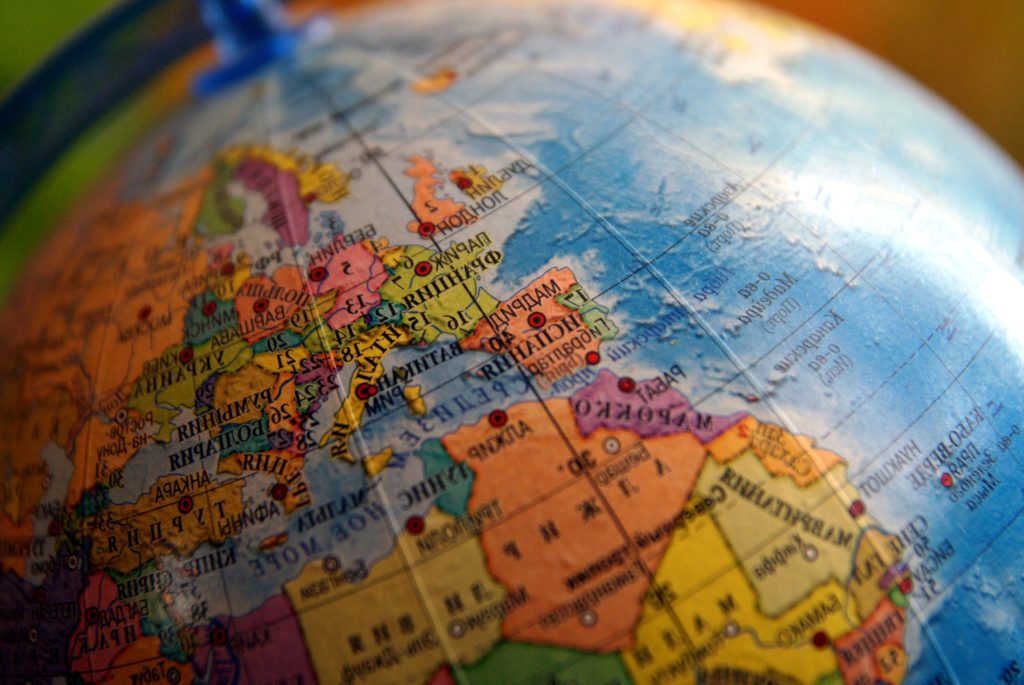Diplomacy as a real instrument of Peace
30 May 2022 - Culture

Following the Second World War, European nations were united by the deep desire to restructure their international relations by adopting a peaceful approach, denying the violent measures of war.
The value of peace was therefore perceived as fundamental and undeniable, becoming the necessary point of reference for every relationship, which among other things is at the basis of the construction of the European Union.
However, these principles were deeply disturbed by the start of a new conflict, waged by Russia against the neighboring Ukrainian state.
To analyze this case, it is necessary to take a few steps back.
It was December 1, 1991 when the historic referendum took place in Ukraine that led the country to independence from the USSR, shortly before the latter’s dissolution.
Citizens split by adopting two very different perspectives: on the one hand there were those who hoped for a rapprochement with the European Union and the Western world as a whole, on the other there were those who wished to maintain a close relationship with Russia.
Tensions escalated when the President, elected in 2010, Viktor Fedorovyč Janukovyč, refused to sign an association agreement with the European Union, a measure that sparked a strong reaction that resulted in demonstrations by the Euromajdan movement.
These events were perceived extremely negatively by Russia. In February 2014 the Crimea area began to register the presence of Russian troops without insignia and the desire to make the territory independent from Ukraine was declared.
In fact, a referendum was held, which received much criticism regarding its terms of validity, and which resulted in the secession of Crimea from Ukraine and its consequent annexation to Russia.
Subsequently, pro-Russian demonstrations were organized in the Donbass area, which resulted in the birth of the two republics of Donetsk and Lugansk, declared independent but evidently linked to Moscow.
In 2022 the international scene was deeply shaken by the start of a further conflict, although the previous one had never actually ended.
The Russian attack, according to some due to Ukrainian tendencies of familiarization with the West, specifically with NATO, began on February 24 and following that date there have been many images testifying the violence inflicted on the Ukrainian population.
The sharp sound of sirens, the desperate flight of women and girls, the suffering, the bombings, the feeling of being abandoned and deprived of one’s home, now sunk under the rubble.
These are the photographs of current reality, which therefore lead to a crucial and necessary reflection.
In modern, advanced and developed times like the present one, the possibility of resorting to the instrument of war to “settle” international problems cannot be considered a viable path.
War crimes must necessarily be ascertained and subjected to trial, as they are contrary to the regulation of international law and to any ethical and moral form of human behavior, but it is necessary to reflect on why and how this could have happened.
History teaches us that the use of violence is never the right answer and in this sense diplomacy, as a fundamental resource, must be considered as the only possible choice with the aim of resolving any sort of issue peacefully.
Every conflict, regardless of its potential outcome, is already in its planning a painful defeat, since as such it will always produce victims, consequences that today can only be condemned.
Dialogue, identification with the other human being, empathy and respect are values that we often consider almost taken for granted, but their importance must necessarily be revived, starting from the very foundations of every form of interpersonal relationship, from the daily one. up to the highest in the institutional sphere.
Human society must not, and cannot, unfold in the Hobbesian state of nature of Homo Homini Lupus (every man is a wolf for another man), but it needs to rediscover the principles of collectivity, closeness, cooperation.
This reflection could therefore be summed up by a famous quote from John Stuart Mill, British philosopher and economist, which states:
” There is not a more accurate test of the progress of civilization than the progress of the power of co-operation “.
In conclusion, diplomacy must absolutely be exercised to the detriment of any form of aggression, and the latter must never be considered legitimate, even when any attempt at peaceful mediation seems to be in vain.
